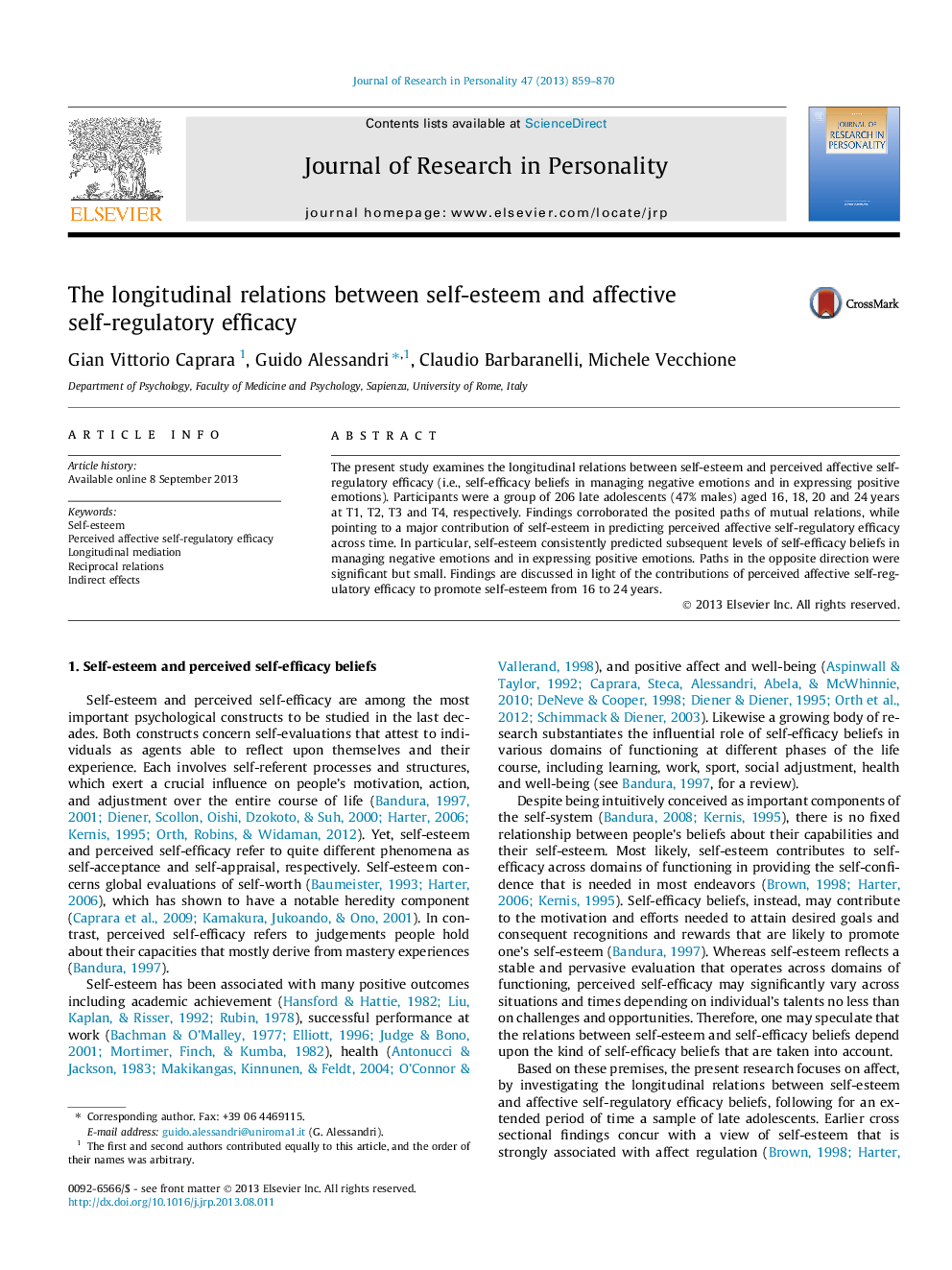| Article ID | Journal | Published Year | Pages | File Type |
|---|---|---|---|---|
| 951379 | Journal of Research in Personality | 2013 | 12 Pages |
•We studied relations between self-esteem and affective self-efficacy beliefs.•We used longitudinal data by 206 late adolescents.•Self-esteem significantly predicted affective self-regulatory efficacy.•Affective self-efficacy belies predicted self-esteem differently across time.
The present study examines the longitudinal relations between self-esteem and perceived affective self-regulatory efficacy (i.e., self-efficacy beliefs in managing negative emotions and in expressing positive emotions). Participants were a group of 206 late adolescents (47% males) aged 16, 18, 20 and 24 years at T1, T2, T3 and T4, respectively. Findings corroborated the posited paths of mutual relations, while pointing to a major contribution of self-esteem in predicting perceived affective self-regulatory efficacy across time. In particular, self-esteem consistently predicted subsequent levels of self-efficacy beliefs in managing negative emotions and in expressing positive emotions. Paths in the opposite direction were significant but small. Findings are discussed in light of the contributions of perceived affective self-regulatory efficacy to promote self-esteem from 16 to 24 years.
